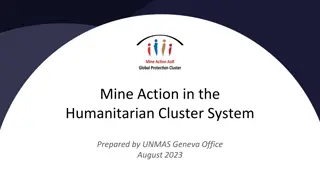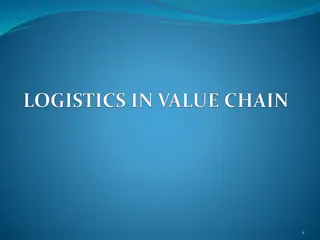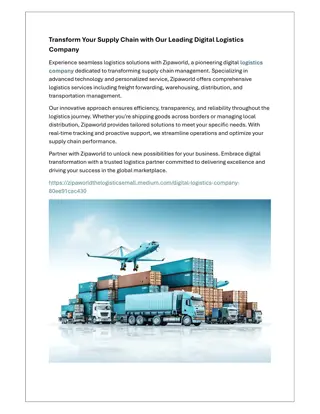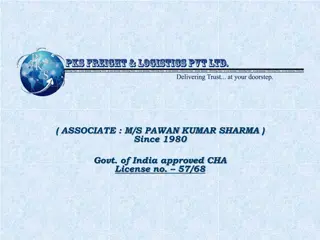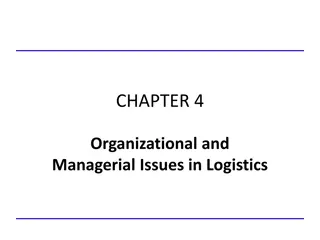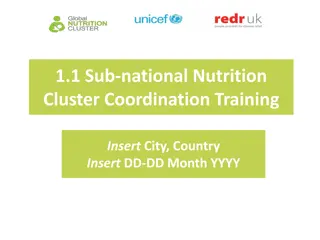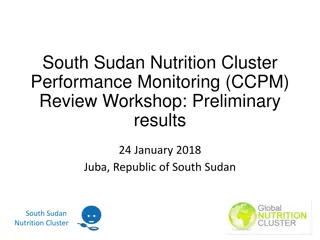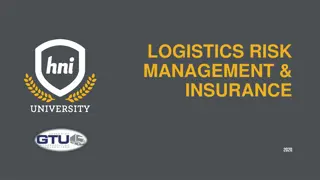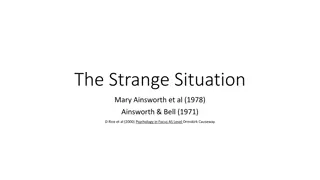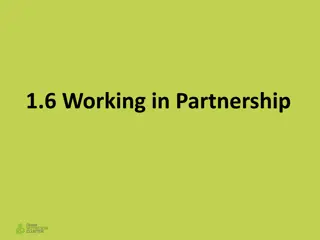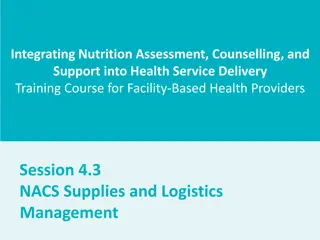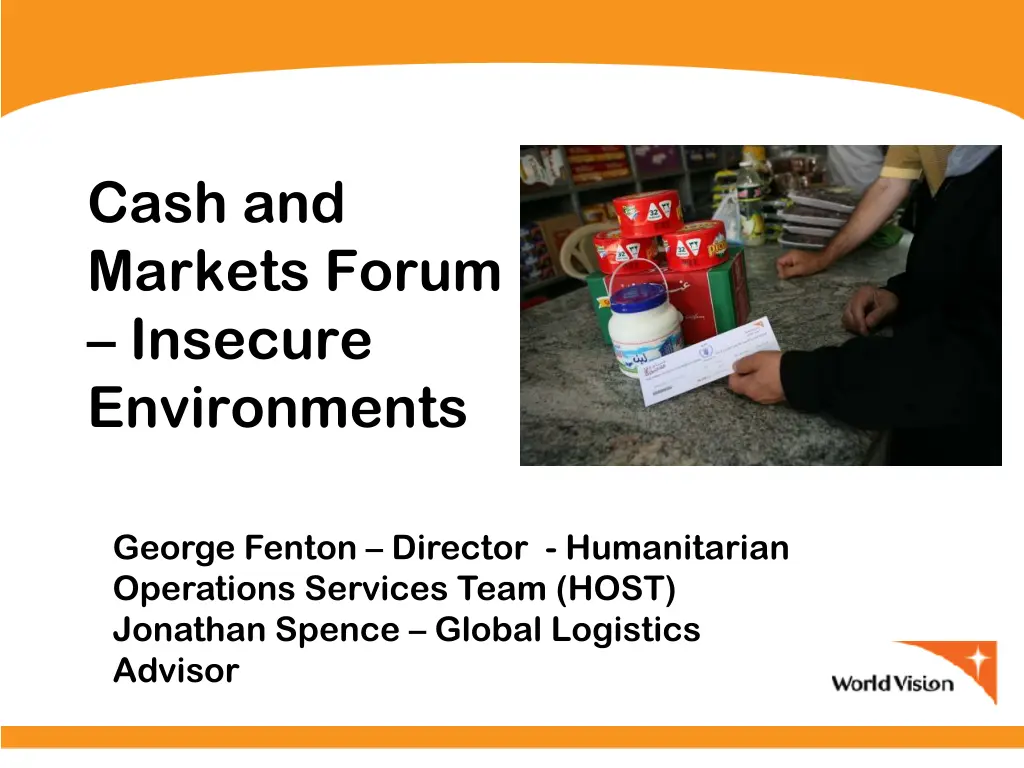
Implementing Cash and Voucher Programs in Conflict-Affected Areas
Explore insights from case studies in Lebanon and Syria on implementing cash and voucher programs in conflict settings. Key reflections highlight successful strategies and challenges faced, with solutions focused on voucher program nature, beneficiary selection, vendor choices, and electronic vouchers for healthcare access.
Download Presentation

Please find below an Image/Link to download the presentation.
The content on the website is provided AS IS for your information and personal use only. It may not be sold, licensed, or shared on other websites without obtaining consent from the author. If you encounter any issues during the download, it is possible that the publisher has removed the file from their server.
You are allowed to download the files provided on this website for personal or commercial use, subject to the condition that they are used lawfully. All files are the property of their respective owners.
The content on the website is provided AS IS for your information and personal use only. It may not be sold, licensed, or shared on other websites without obtaining consent from the author.
E N D
Presentation Transcript
Cash and Markets Forum Insecure Environments George Fenton Director - Humanitarian Operations Services Team (HOST) Jonathan Spence Global Logistics Advisor
Lebanon - Case Study: Cash & Vouchers in Bekka Valley, Lebanon $20m + programmes funded by WFP and UNHCR Chronic situation with protracted conflict Tension between displaced Syrians and host communities Combination of vouchers and cash distribution to Syrian refugees
Lebanon Key Reflections Keys to successful implementation Functioning markets Mature banking system Beneficiary and vendor openness Lack of Standard Operating Procedures No on-the job training/on-going support Verification and monitoring issues Unconditional cash programming posed significant context related risks
Syria Case Study: Medical Voucher programme in Northern Syria No MoH system functioning IDPs in desperate need of medical assistance but even at present, no/little income to access necessary services 300 private doctors with unstable incomes, aim to employ them to work in clinics for IDPs Initial plan had been to hire doctors, set up clinics, supply and deliver medicines and equipment
Problems encountered Why did we change from In Kind to Vouchers? Not registered as medical organisation procurement in Turkey not possible Insecurity and lack of access across border (Staff and resources) Operational and Supply Chain risks and costs would be reduced Doctors would have to leave private clinics to work for WV Not sustainable in long term
Solutions found? Current nature of Voucher programme Pilot areas to test modality Beneficiary selection focus on children under 5, IDPs and vulnerable host community members Assessments IDP populations, clinic capacities and pharmacy capacities Vendor Selection Private registered GPs linked with geographic location and audit of clinics and pharmacies Geographically appropriate choices for beneficiaries Electronic vouchers to provide access to free consultation and treatment
Solutions found? Current nature of Voucher programme Unique vouchers manufactured in Turkey to reduce fraud risk Selection criteria to be expanded to include other vulnerable groups if required (e.g. pregnant women, elderly) Focus on mass support of verified clinics so all can get treated irrespective of income, but also giving freedom of choice High calibre and experienced local staff (health workers and working in IDP camps) Mature supply chain (private doctors and medicines)
How we will we improve? Risks / Challenges / Lessons Learned Need for nuanced approach in insecure environments No banking system Insufficient internal controls regarding remote management No written SOPs or tested control mechanisms Assessment and monitoring tools bespoke and designed from scratch Insufficient supply chain analysis Expert staff from market analysis is necessity
Any Questions, Comments, Reflections welcomed

